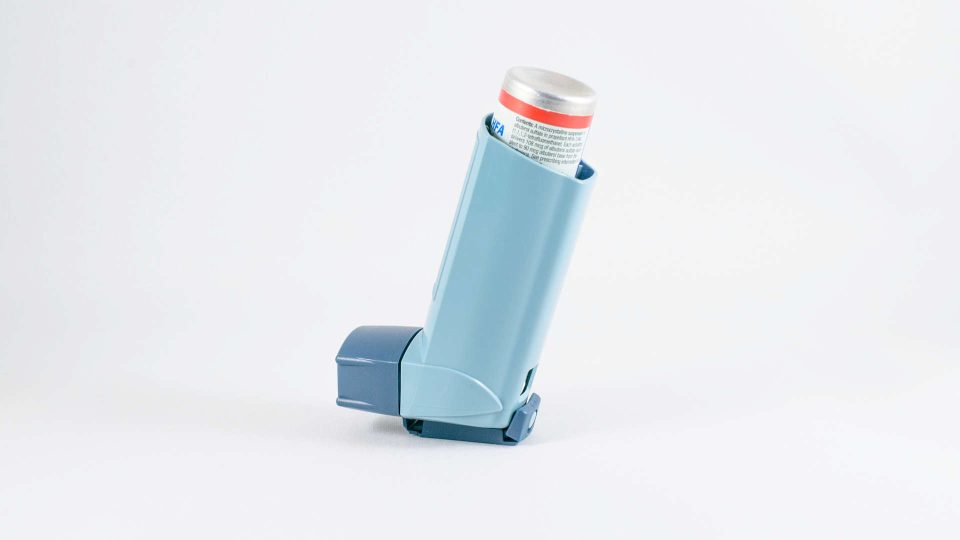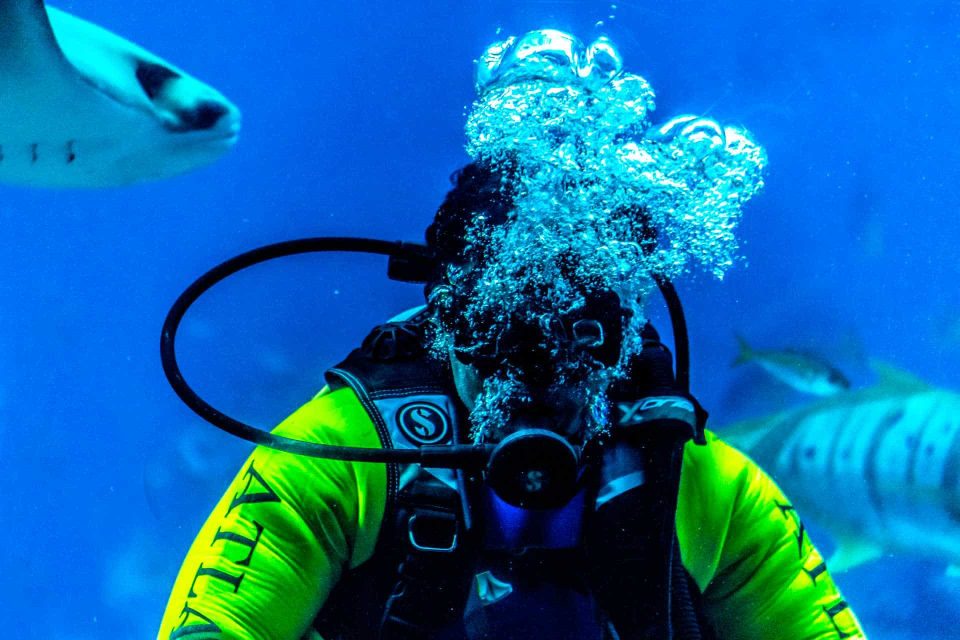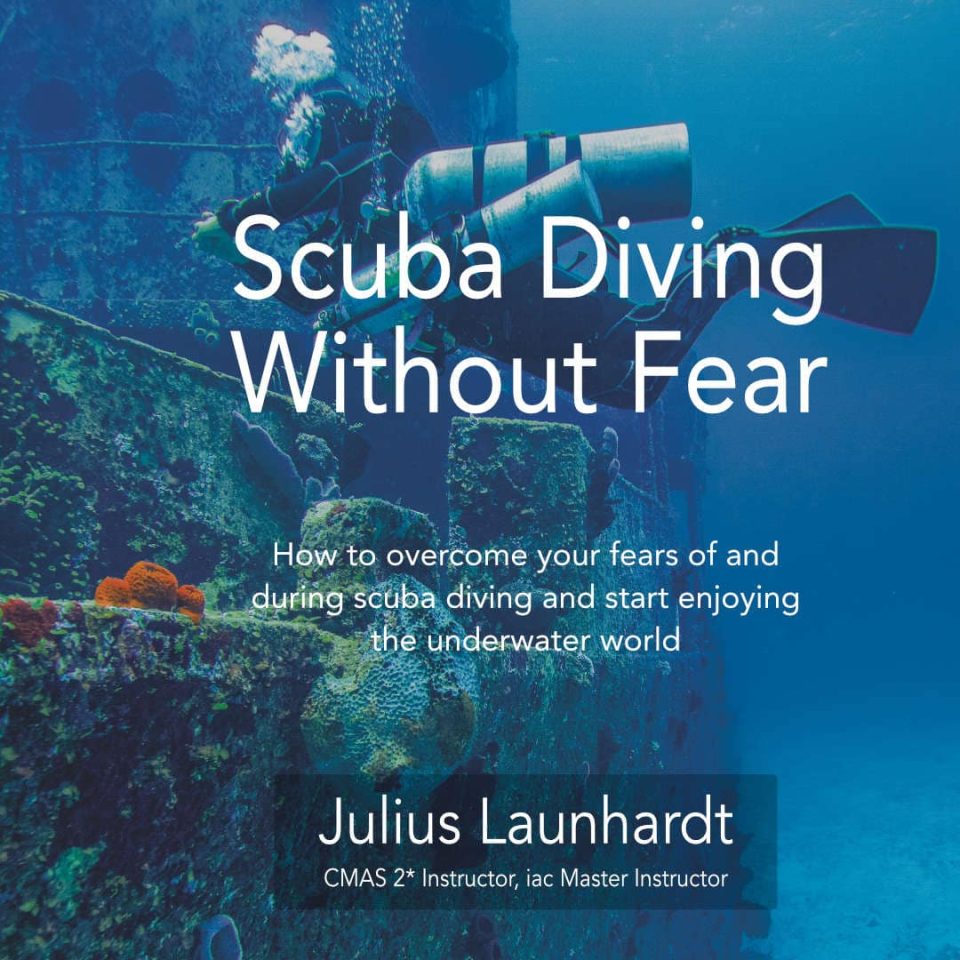Scuba diving is a great sport to explore the underwater world and see cool marine animals in their natural habitat.
Breathing from our scuba tank while floating weightlessly like an astronaut is appealing to many outdoor and ocean lovers.
However, to some people, the word “breathing” doesn’t always come as easy as for others.
If you suffer from asthma, or similar breathing-related conditions, you might wonder if it’s possible to go diving with asthma and about any health risks associated with it.
In this article, we will shine a light on the topic and tell you exactly how to go scuba diving when you have asthma.
Can I scuba dive with asthma?
People with mild or medium cases of asthma may go diving following certain precautions. Get a medical checkup by a physician to ensure your lungs are healthy enough to dive and plan each dive carefully. Research suggests that exercise-, emotion-, and cold-induced asthmatics should not dive, as well as those who required rescue medication within 48 hours.
Physicians traditionally have recommended against asthmatic people diving.
Based on recent research, however, asthma does not necessarily mean you cannot dive. As breathing is such a crucial topic for divers underwater, you will need to be very careful though.
As usual with diving it goes:
Scuba diving is at your own risk.
Therefore, you have to be the judge of whether scuba diving is safe for you or not.
A medical checkup with a physician, as well as thorough consulting with your doctors is mandatory.
If you have required any rescue medication within 48 hours, please sit out the next diving day and wait until you feel better.

Exercise-, emotion-, and cold-induced asthmatics should probably not dive at all, unless they have only very mild cases.
Potential risks of scuba diving with asthma
Scuba diving can pose certain risks to asthmatics due to the nature of the environment and activities involved. The biggest of them is bronchospasm which in turn may lead to other diving-related injuries.
Bronchospasm
Bronchospasm is a sudden constriction of the bronchioles, leading to a narrowing of your airways. It makes breathing difficult and may even be life-threatening.
Asthmatic patients suffer from frequent bronchospasm which requires medication and inhalers.
The airway obstruction caused by it prevents gas elimination and increases pressure variations during descent and ascent underwater
Based on the Law of Boyle, such pressure disequilibrium in the lung can cause decompression illness.
Uncontrolled expansion of the lungs may also result in pulmonary barotrauma, arterial gas embolism, and pneumothorax.
Compressed Air
The compressed air we breathe from a scuba tank is cool and dry, increasing the possibility of developing exercise-induced bronchospasm during the dive.
Air Contamination
Although air compressors are generally very safe, pollen contamination of the scuba tank may aggravate atopic asthma in patients.
Seawater Aspiration
During a scuba dive, asthmatic divers may aspire seawater which also can also induce bronchospasm.
Exercise
Scuba diving involves serious exercise and burns a lot of calories.
Swimming in currents, carrying scuba gear, or breathing at depth under pressure are all activities that may potentially lead to exercise-induced asthma attacks.
Using a regulator
Using a scuba regulator can be a strange feeling for new divers.
It is also true that there is slightly more effort involved in breathing from it than usual.
If you have asthma, do a discover scuba diving course and see if this is an issue for you.

Fear
Diving in deep or dark water, or with large animals may cause fear in people. Emotion-, or fear-induced asthma may be the result.
However, this is definitely manageable and can be trained.
Therefore, I wrote a book called scuba diving without fear to make this easier for you! Check it out below:
Get my book!

Requirements for diving with asthma
Asthmatic divers should get a medical checkup by a doctor before starting to dive.
Diving evaluations for asthmatic patients should focus on:
- Patient history
- Spirometry
- Allergy testing
- Bronchial challenges
- Pass a bronchial provocation challenge
- Current chest symptoms
Only if you pass all tests you are fit for diving with asthma.
DAN also recommends that physicians trained in diving medicine should be consulted.
Can I use an inhaler underwater?
Inhalers used by asthma patients cannot be used underwater or while diving. Asthmatic divers should also not dive within 48 hours of using an emergency inhaler. However, some medical studies indicate it might be helpful to use it half an hour before a dive to minimize the risk of bronchospasm.
Conclusion
Most people probably think that asthma is a contradiction to scuba diving. However, it does not rule it out completely.
Understanding the risks involved, and getting a thorough medical checkup before is absolutely crucial to be safe while diving.
Consult with your doctor before diving with asthma and you might find out that you are fit to do so.
If you have any suggestions and tips for other asthmatic divers, leave them in the comments below!
Join the email list to get regular diving tips, tricks, insights, and news straight to your inbox!
Always dive with friends and happy bubbles.
Cheers
Julius

